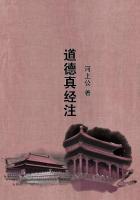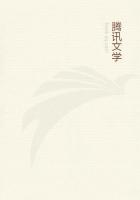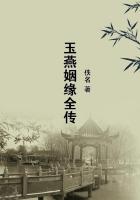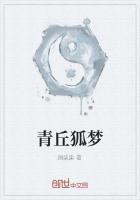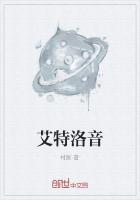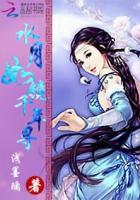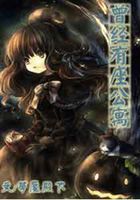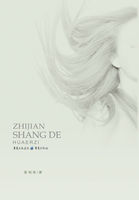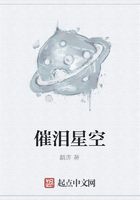Exactly at the same period Mary ceased to see me. The girl's sensitive nature sunk under the shock. She had now no elder woman to comfort and advise her; she lived alone with her father, who invariably changed the subject whenever she spoke of the old times. The secret sorrow that preys on body and mind alike preyed on _her_. A cold, caught at the inclement season, turned to fever. For weeks she was in danger of death. When she recovered, her head had been stripped of its beautiful hair by the doctor's order. The sacrifice had been necessary to save her life. It proved to be, in one respect, a cruel sacrifice--her hair never grew plentifully again. When it did reappear, it had completely lost its charming mingled hues of deep red and brown; it was now of one monotonous light-brown color throughout. At first sight, Mary's Scotch friends hardly knew her again. But Nature made amends for what the head had lost by what the face and the figure gained. In a year from the date of her illness, the frail little child of the old days at Greenwater Broad had ripened, in the bracing Scotch air and the healthy mode of life, into a comely young woman. Her features were still, as in her early years, not regularly beautiful; but the change in her was not the less marked on that account. The wan face had filled out, and the pale complexion had found its color. As to her figure, its remarkable development was perceived even by the rough people about her. Promising nothing when she was a child, it had now sprung into womanly fullness, symmetry, and grace. It was a strikingly beautiful figure, in the strictest sense of the word. Morally as well as physically, there were moments, at this period of their lives, when even her own father hardly recognized his daughter of former days. She had lost her childish vivacity--her sweet, equable flow of good humor. Silent and self-absorbed, she went through the daily routine of her duties enduringly. The hope of meeting me again had sunk to a dead hope in her by this time. She made no complaint. The bodily strength that she had gained in these later days had its sympathetic influence in steadying her mind. When her father once or twice ventured to ask if she was still thinking of me, she answered quietly that she had brought herself to share his opinions. She could not doubt that I had long since ceased to think of her. Even if I had remained faithful to her, she was old enough now to know that the difference between us in rank made our union by marriage an impossibility. It would be best (she thought) not to refer any more to the past, best to forget me, as I had forgotten her. So she spoke now. So, tried by the test of appearances, Dame Dermody's confident forecast of our destinies had failed to justify itself, and had taken its place among the predictions that are never fulfilled. The next notable event in the family annals which followed Mary's illness happened when she had attained the age of nineteen years. Even at this distance of time my heart sinks, my courage fails me, at the critical stage in my narrative which I have now reached. A storm of unusual severity burst over the eastern coast of Scotland. Among the ships that were lost in the tempest was a vessel bound from Holland, which was wrecked on the rocky shore near Dermody's place of abode. Leading the way in all good actions, the bailiff led the way in rescuing the passengers and crew of the lost ship. He had brought one man alive to land, and was on his way back to the vessel, when two heavy seas, following in close succession, dashed him against the rocks. He was rescued, at the risk of their own lives, by his neighbors. The medical examination disclosed a broken bone and severe bruises and lacerations. So far, Dermody's sufferings were easy of relief. But, after a lapse of time, symptoms appeared in the patient which revealed to his medical attendant the presence of serious internal injury. In the doctor's opinion, he could never hope to resume the active habits of his life. He would be an invalid and a crippled man for the rest of his days. Under these melancholy circumstances, the bailiff's employer did all that could be strictly expected of him, He hired an assistant to undertake the supervision of the farm work, and he permitted Dermody to occupy his cottage for the next three months. This concession gave the poor man time to recover such relics of strength as were still left to him, and to consult his friends in Glasgow on the doubtful question of his life to come. The prospect was a serious one. Dermody was quite unfit for any sedentary employment; and the little money that he had saved was not enough to support his daughter and himself. The Scotch friends were willing and kind; but they had domestic claims on them, and they had no money to spare. In this emergency, the passenger in the wrecked vessel (whose life Dermody had saved) came forward with a proposal which took father and daughter alike by surprise. He made Mary an offer of marriage; on the express understanding (if she accepted him) that her home was to be her father's home also to the end of his life. The person who thus associated himself with the Dermodys in the time of their trouble was a Dutch gentleman, named Ernest Van Brandt. He possessed a share in a fishing establishment on the shores of the Zuyder Zee; and he was on his way to establish a correspondence with the fisheries in the North of Scotland when the vessel was wrecked. Mary had produced a strong impression on him when they first met. He had lingered in the neighborhood, in the hope of gaining her favorable regard, with time to help him. Personally he was a handsome man, in the prime of life; and he was possessed of a sufficient income to marry on. In making his proposal, he produced references to persons of high social position in Holland, who could answer for hi m, so far as the questions of character and position were concerned. Mary was long in considering which course it would be best for her helpless father, and best for herself, to adopt. The hope of a marriage with me had been a hope abandoned by her years since. No woman looks forward willingly to a life of cheerless celibacy. In thinking of her future, Mary naturally thought of herself in the character of a wife. Could she fairly expect in the time to come to receive any more attractive proposal than the proposal now addressed to her? Mr. Van Brandt had every personal advantage that a woman could desire; he was devotedly in love with her; and he felt a grateful affection for her father as the man to whom he owed his life. With no other hope in her heart--with no other prospect in view--what could she do better than marry Mr. Van Brandt? Influenced by these considerations, she decided on speaking the fatal word. She said, "Yes." At the same time, she spoke plainly to Mr. Van Brandt, unreservedly acknowledging that she had contemplated another future than the future now set before her. She did not conceal that there had once been an old love in her heart, and that a new love was more than she could command. Esteem, gratitude, and regard she could honestly offer; and, with time, love might come. For the rest, she had long since disassociated herself from the past, and had definitely given up all the hopes and wishes once connected with it. Repose for her father, and tranquil happiness for herself, were the only favors that she asked of fortune now. These she might find under the roof of an honorable man who loved and respected her. She could promise, on her side, to make him a good and faithful wife, if she could promise no more. It rested with Mr. Van Brandt to say whether he really believed that he would be consulting his own happiness in marrying her on these terms. Mr. Van Brandt accepted the terms without a moment's hesitation. They would have been married immediately but for an alarming change for the worse in the condition of Dermody's health. Symptoms showed themselves, which the doctor confessed that he had not anticipated when he had given his opinion on the case. He warned Mary that the end might be near. A physician was summoned from Edinburgh, at Mr. Van Brandt's expense. He confirmed the opinion entertained by the country doctor. For some days longer the good bailiff lingered. On the last morning, he put his daughter's hand in Van Brandt's hand. "Make her happy, sir," he said, in his simple way, "and you will be even with me for saving your life." The same day he died quietly in his daughter's arms. Mary's future was now entirely in her lover's hands. The relatives in Glasgow had daughters of their own to provide for. The relatives in London resented Dermody's neglect of them. Van Brandt waited, delicately and considerately, until the first violence of the girl's grief had worn itself out, and then he pleaded irresistibly for a husband's claim to console her. The time at which they were married in Scotland was also the time at which I was on my way home from India. Mary had then reached the age of twenty years. The story of our ten years' separation is now told; the narrative leaves us at the outset of our new lives. I am with my mother, beginning my career as a country gentleman on the estate in Perthshire which I have inherited from Mr. Germaine. Mary is with her husband, enjoying her new privileges, learning her new duties, as a wife. She, too, is living in Scotland--living, by a strange fatality, not very far distant from my country-house. I have no suspicion that she is so near to me: the name of Mrs. Van Brandt (even if I had heard it) appeals to no familiar association in my mind. Still the kindred spirits are parted. Still there is no idea on her side, and no idea on mine, that we shall ever meet again.
同类推荐
热门推荐

